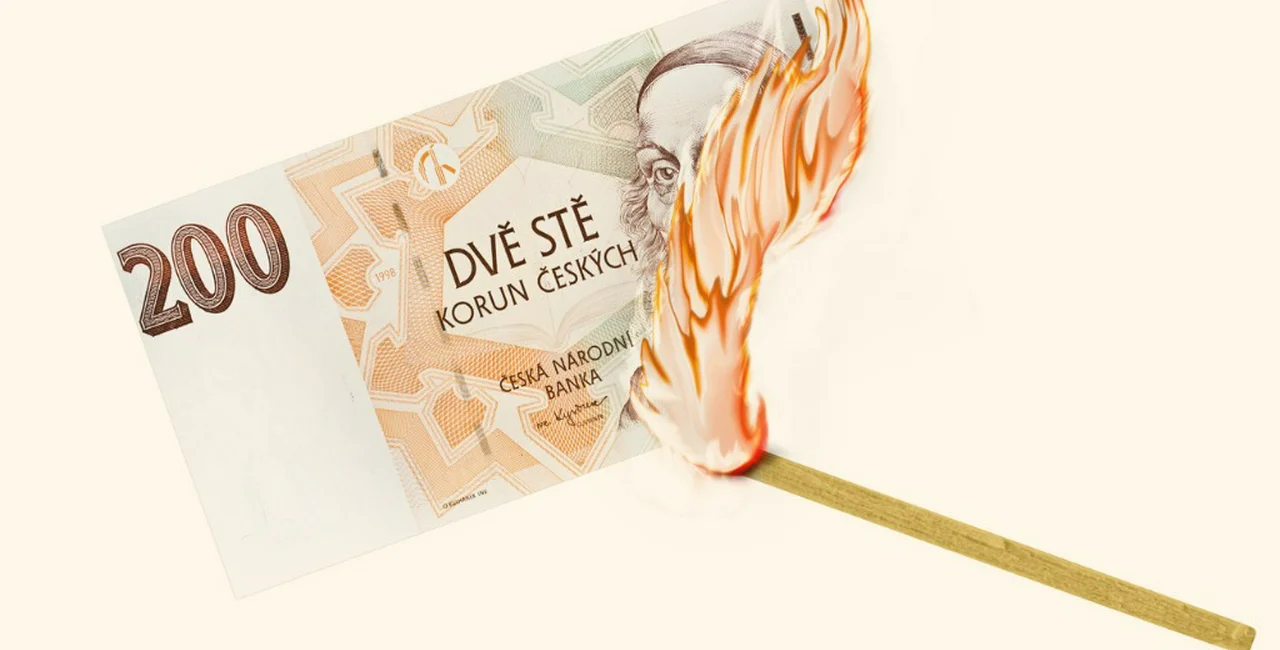The average gross salary in Czechia in the first quarter of this year increased by 8.6 percent year-on-year to CZK 41,265. But in real terms, when inflation is taken into account, the earnings of employees decreased by 6.7 percent.
Compared to the last quarter of 2022, the average wage growth, adjusted for seasonal effects, was 2.2 percent, according to the Czech Statistical Office (ČSÚ).
Real wage growth depends on consumer price growth. In the first quarter of this year, prices rose by 16.4 percent, which was the second-highest growth rate this century.
For Prague, the average gross salary was CZK 52,814, an increase of 7.2 percent over the same period of last year. This was the lowest percentage increase of any region in the country, and it also means that real wages for people in Prague dropped by more than the national average.
The average wage was lowest in the Karlovy Vary region, at CZK 35,010, an increase of 8.0 percent year on year. The largest jump in the average wage was in the South Bohemia region, where it rose by 9.9 percent to reach CZK 37,351.
Real wages expected to fall for the rest of the year
Cyrrus analyst Vít Hradil told ČTK that Czech employees still don't have many reasons to celebrate. “Their real average wage is currently only slightly above the level of the first quarter of 2017, and their purchasing power has thus gone back in time by almost six years," he said.
In an international comparison, the Czech Republic is the EU country with the deepest decline in the purchasing power of wages compared to the pre-covid year 2019, UniCredit Bank analyst Pavel Sobíšek said. This is due to the poor performance of the Czech economy, the significant strengthening of the exchange rate, and compensation for the rapid growth of wages from 2017 to 2020, which did not correspond to the development of productivity, he added.
Czech Banking Association economist Jakub Seidler said the increase in wages will not catch up with the increase in prices until the end of this year and will begin to overtake it only in the next year.
The average gross nominal wage (průměrná hrubá nominální mzda) is the amount of money you get paid by salary, including bonuses and overtime. About two-thirds of employees have a wage below the national average. Real wage (reálná mzda), also called adjusted wage, takes into account inflation and reflects the amount of goods and services that can be bought. A decline in the real wage means a person can buy less.
Only the energy sector was ahead of inflation
Wage developments varied greatly by sector. Wage growth only exceeded the rate of inflation in the energy sector, where average salaries rose by an average of 23.1 percent to CZK 79,221. "This development was related to the payment of above-standard extraordinary rewards," the ČSÚ stated.
The next highest increase was in public administration and defense, which rose by 11.9 percent, followed by mining and quarrying, up 11.6 percent, and accommodation and food service activities, up 11.4 percent. Statisticians recorded the largest year-on-year wage decrease in education-related jobs, where purchasing power decreased by 10.7 percent.
The median wage, which is the amount in the middle of the wage distribution, in the first quarter in Czechia compared to the same period of the previous year rose by 8.9 percent to CZK 34,741.
There was still a large gender gap, with the median wage for men at CZK 37,696 for men and at CZK 31,856 for women. According to statistics, 80 percent of employees received a salary between CZK 18,601 and 65,512.
The volume of wages increased by 9.8 percent in the first quarter of this year. The number of employees increased by 1.1 percent in the same period.












 Reading time: 3 minutes
Reading time: 3 minutes 




























